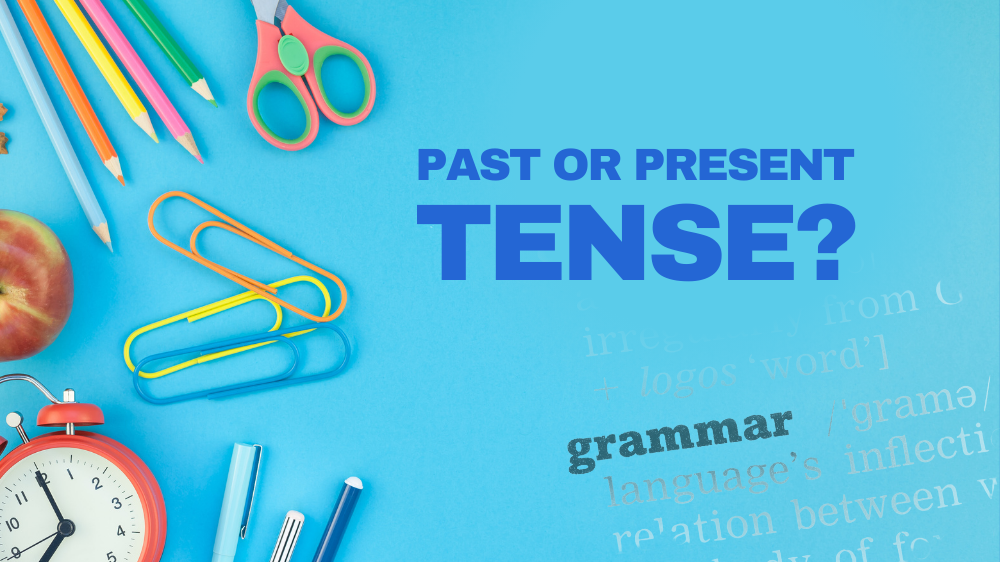What Tense to Use On Your Resume, Past or Present Tense?
Reading your resume is one of the first ways that a prospective employer gets to know you. To put your best foot forward, you should make sure that you write a resume that is neat, accurate, and grammatically correct. This may seem obvious, but because a resume reflects your past, present, and (hopeful) future, it can be easy to get tripped up on verb tenses.

Below, we will go through each section of a resume and give examples of how you should phrase statements so that your future boss notices your experience, not any small mistakes.
Objective/Summary
At the top of your resume, it’s a good idea to include a summary or objective statement to give prospective employers an overview of your qualifications and what you are looking for in the next stage of your career. This should be in the present tense, but also passive voice, meaning that the subject is being acted upon by the verb. Your English teachers may have warned you against from overusing the passive voice in your writing – and they are right – but it is appropriate to depend more heavily on this voice in a resume.
Examples:
“Enthusiastic recent graduate with certification in bookkeeping. Looking for an entry-level position with growth opportunities while preparing for my CPA exam. Hardworking, curious, and diligent.”
“Experienced programmer seeking the opportunity to share expertise and mentor teams. Fluent in JavaScript, Python, and C++. Five years of experience in customer support.”
“Results-driven sales manager with 15+ years of experience ready to grow into a VP of Sales position. Led large sales teams to exceed annual targets. Well-established network of prospects in the hospitality industry.”
Job History
When discussing your employment experience, you want to portray yourself as a proactive “do-er,” so, therefore, you will limit the passive voice. Instead, start each bullet point with a verb in the first person (“I”) – first-person present tense when you are describing a current task or responsibility; first-person past tense for previous jobs or accomplishments that happened in the past.
Examples:
Current position description:
“Recruit, hire, and train technical support staff.”
Current position achievement:
“Established evaluation processes that were adopted across departments and recognized by national leadership. Enforce standards with department managers and provide technical assistance as needed.”
Past position description:
“Cultivated sales prospects throughout the tri-state area.”
Past position achievement:
“Selected as Employee-of-the-Month following the implementation of a successful interoffice recycling program.”
Education
Depending on your industry or experience level, you may want to go into more detail about your education or experiences in school. Just like with your job history, you should only use the present tense for anything that describes your current situation. Anything else should be in the past tense.
Examples:
Current student and experience:
“Mentor first-year students as part of the Student Advising Project.”
Current student and experience/past achievement:
“Lead study groups and give feedback on undergraduate papers. In the first semester, my cohort received grades above 90% on all exams.”
Current student/past experience:
“Elected chair of Sustainability Alliance and planned annual Earth Day events around campus.”
Past student and experience:
“Planned social events for Graduate Student Association.”
Before you send your resume, make sure to give it one last thorough review. Don’t trust your grammar-check – it doesn’t know your experience or the context of what you are writing. Read it out loud to yourself to see if flows well and ask a friend or family member to review as well. By following these simple rules and avoiding common resume mistakes, you can ensure that a hiring manager won’t get stuck on minor details and can focus on what makes you a great candidate for the job.